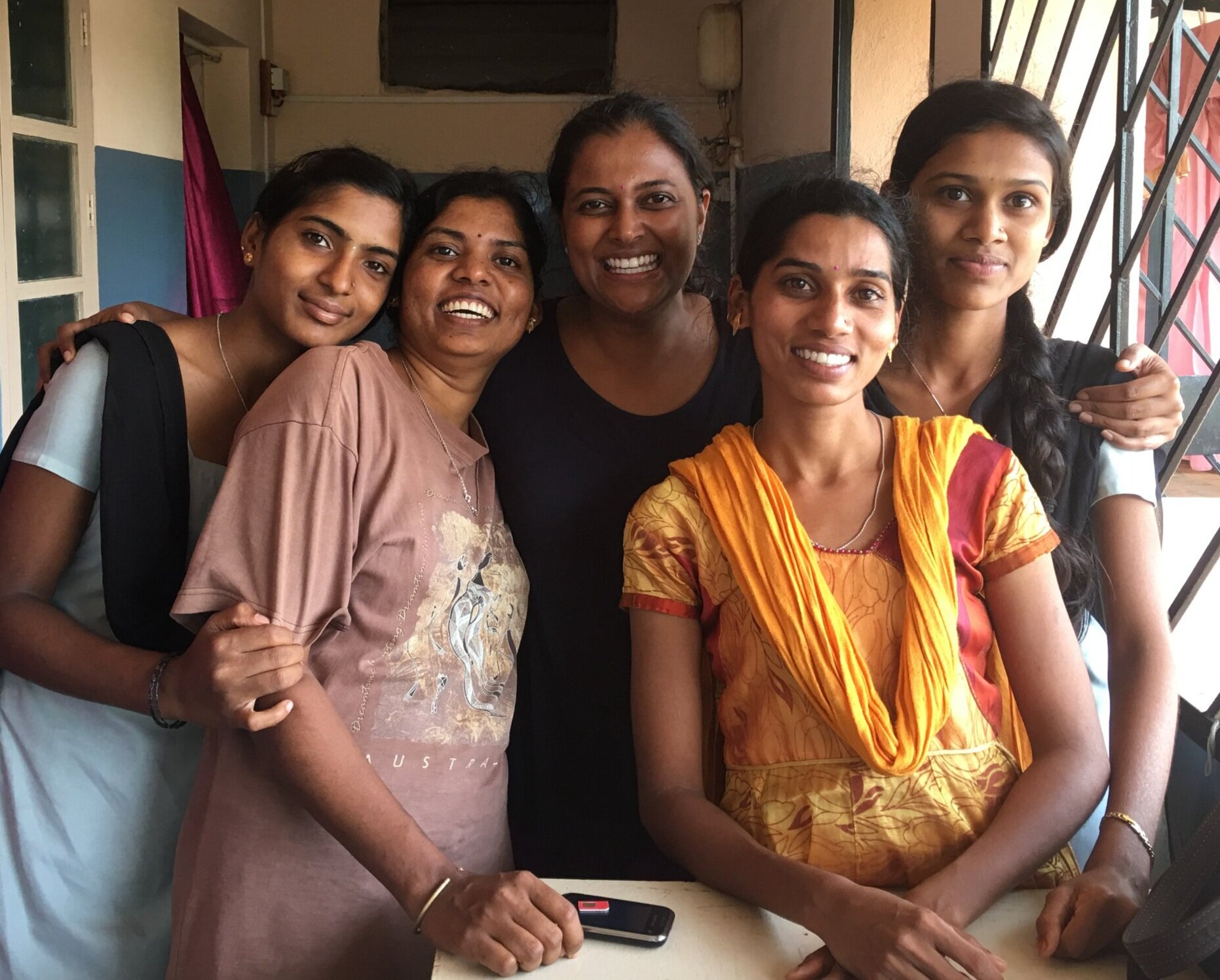Fiona’s work began in 2013, when she visited her ancestral home of India for the first time.
As a South African Indian who grew up during the Apartheid era, she had always longed to visit India to further explore her identity and cultural background. During this self-exploratory trip to India, Fiona lived and worked among a group of African Indians called Siddis in a remote village called Mainalli in Karnataka, India. While in India, she spent time with the Siddi community where she learned that many girls in the village would not attend school or isolate themselves for days during their menstrual cycle.
As she began to unpack and learn more about the lived experience of the Siddi girls and women during their period, Fiona realized her trip to India was no coincidence. Not only did it bring her closer to her Indian heritage, it also exposed her to the myriad of cultural challenges the Siddi girls and women face during their menstrual cycle. For instance, in some cases girls and women are expected to sleep in designated outdoor huts that are called the” period house”. It is expected that the girls and women remain in this house for the duration of their menstrual cycle. While the girls and women are isolated in the “period house,” they are often vulnerable to abuse.
In addition to the social and racial discrimination the Siddis face, their lack of access to proper sanitary products, lack of clean drinking water, and limited education paralled Fiona’s experience during Apartheid. As she witnessed the challenges Siddi girls and women faced due to the exclusionary attitudes and long standing cultural taboos in regard to menstruation, she knew that something had to be done to empower the Siddi girls and women to advance themselves.
For the past 7 years, Fiona has worked collaboratively with the Siddi communities of Karnataka, India, to empower, educate, and engage the girls and women on issues surrounding menstrual hygiene management. Empower Women Sanitary Solutions (EWSS) is a project under Small Acts for Sustainability (SAS). EWSS provides girls and women beautifully stitched cotton reusable sanitary pads as a sustainable product as well as educational workshops on menstrual hygiene.
EWSS was designed to teach seamstresses how to make reusable cotton sanitary pads, which are distributed to hostel girls, sangha groups (self-help groups) and women in Siddi villages. Eventually, the project of EWSS expanded to include workshops and focus groups on female reproductive health, dental hygiene, gender based violence and career counseling. The focus groups created a safe space for Siddi girls and women to exchange their stories with each other, while finding support and strength. In addition, these focus groups expanded to other Scheduled Tribes and Scheduled Castes of women who face similar challenges in this geographic region. The pad project became a catalyst to address a variety of other issues which led to the expansion for a larger platform; hence the launch of Small Acts for Sustainability.






